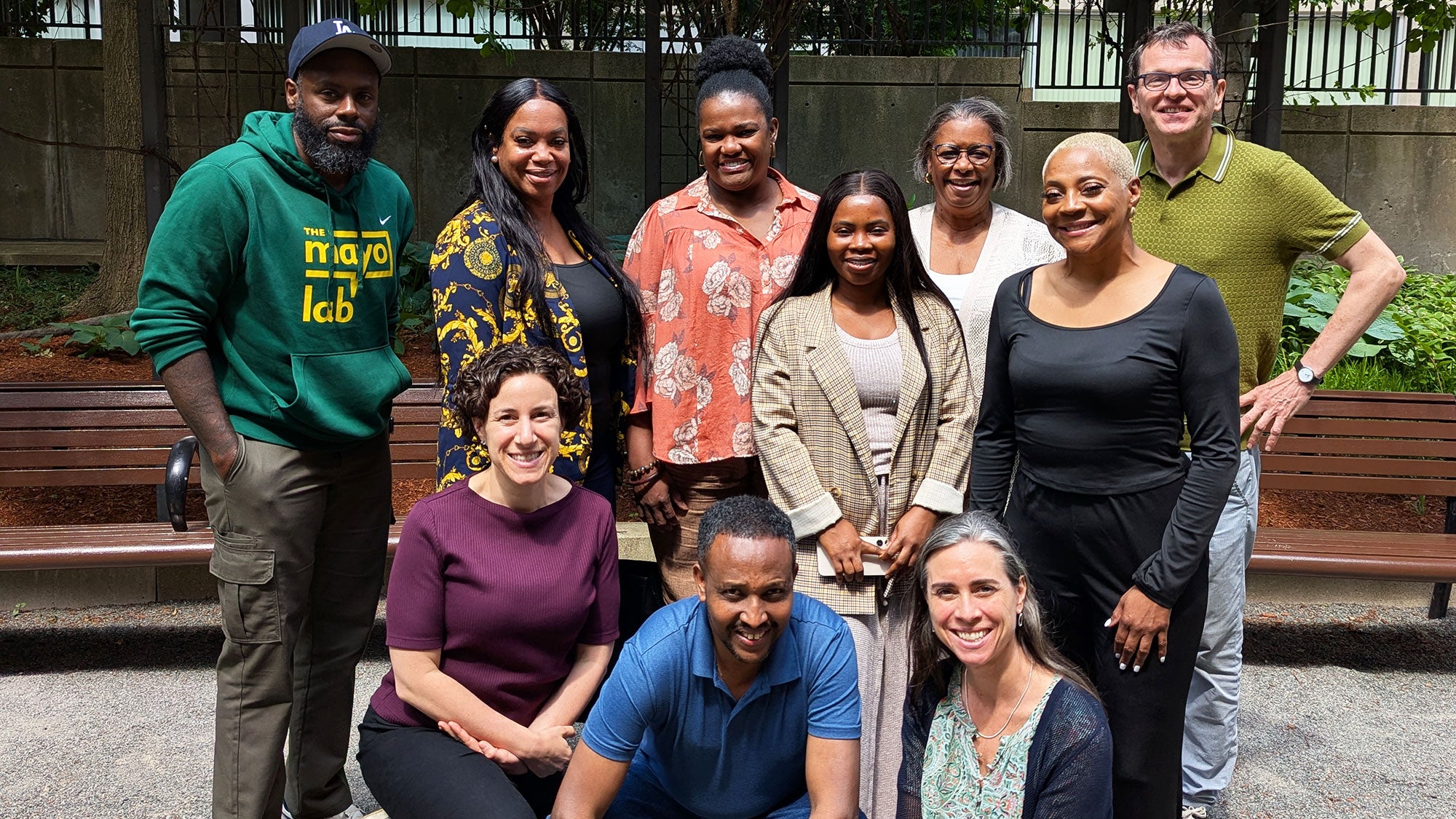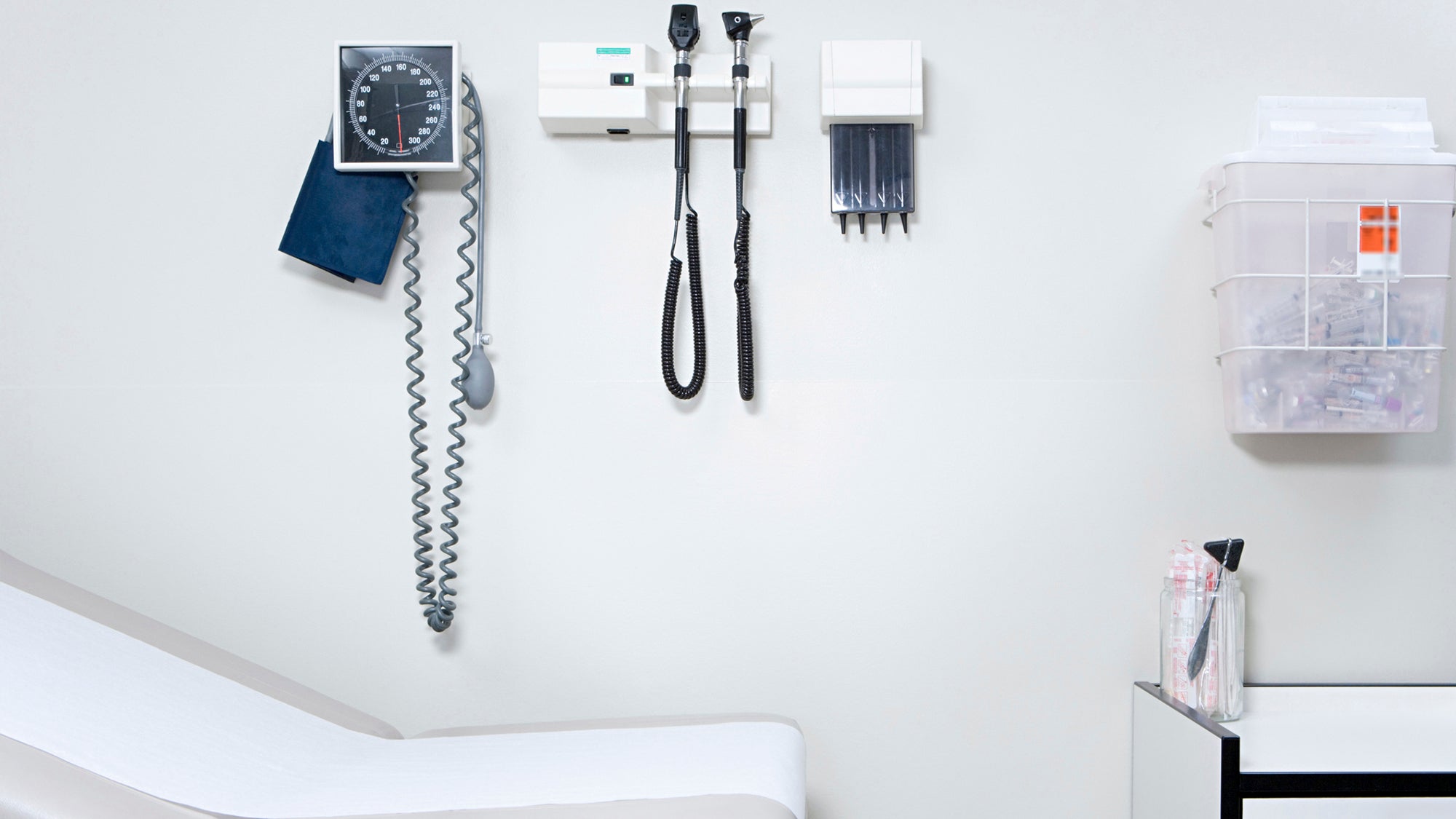Training program supports maternal health research in Mississippi Delta

Earlier this summer, Harvard T.H. Chan School of Public Health hosted six early-stage investigators focused on improving maternal health outcomes in the Mississippi Delta. The visit—a week of programming aimed at helping them develop their research agendas—was part of a two-year training program with the Mississippi Delta Center of Excellence in Maternal Health, based at Jackson State University and run in collaboration with Harvard Chan School and the Mississippi Department of Health.
The program’s first cohort of fellows, who are primarily from historically Black colleges and universities in Mississippi, began their training—which is mostly online—in January. They include assistant professors and others building research groups or starting independent research projects. Through the program, they receive training in grant writing and other skills, mentorship, access to research datasets, and networking opportunities, with the goal of submitting a grant proposal by the end of the program.
Investments in researchers and research infrastructure are greatly needed in the Mississippi Delta, a region with some of the worst maternal and child health outcomes in the country, said Henning Tiemeier, Sumner and Esther Feldberg Professor of Maternal and Child Health. He helps lead the Center’s efforts, which also include research focused on improving maternal health care access in parts of the Delta region where services are limited. One project is training community health workers to do home visits with new mothers.
The Center is funded by a grant to Jackson State University from the National Institutes of Health’s IMPROVE Initiative. Harvard Chan School received a subaward from that grant, so its portion of the Center’s work has not been impacted by federal grant terminations at Harvard. Tiemeier said that the Center is a good example of how federal funding to Harvard can have broader benefits to the nation. By enabling Tiemeier and his colleagues to share their expertise and resources, the government has invested in Mississippi, he said.
Meet two of the fellows
Brenda Collins is a family nurse practitioner and nursing educator who currently serves as the director for Alcorn State University Graduate Nursing Programs and the Alcorn State University Family Clinic.
Maternal health work is a deeply personal interest for her. She said that as an African American woman living in Mississippi, mother, and person diagnosed with a chronic condition, “I know the plight of women in a place where getting your needs met is challenging. I can relate.” And as a provider, she’s witnessed her state’s maternal health inequities firsthand.
She said that she was excited to have the opportunity to gain experience with research, community partnerships, and training in grant application development through the program.
Collins’ research interests are in addressing the root causes of maternal health disparities in the Mississippi Delta and expanding access to care through innovative care models and increasing the maternal health workforce.
Rita Momah is director of the Ryan White Part B Ending the HIV Epidemic project for the Mississippi State Department of Health.
She learned about the Center from its leader Mary Shaw, chair of the Department of Behavioral and Environmental Health at Jackson State and began to see intersections between maternal health and her work in HIV prevention and treatment.
She said that she was particularly interested to learn about the federally funded SMARTT (Surveillance Monitoring for ART Toxicities) study, which informs treatment guidelines for pregnant women living with HIV. She hopes to use data from the study to show that rapid linkage to care, retention in care, and viral suppression can benefit anyone diagnosed with HIV.
To improve maternal health outcomes in Mississippi, she said that she would prioritize educating the public around the health needs of pregnant women and improving access to maternal health care. With effort in these areas, she said, “I strongly believe that adverse maternal health outcomes in Mississippi would become history.”


